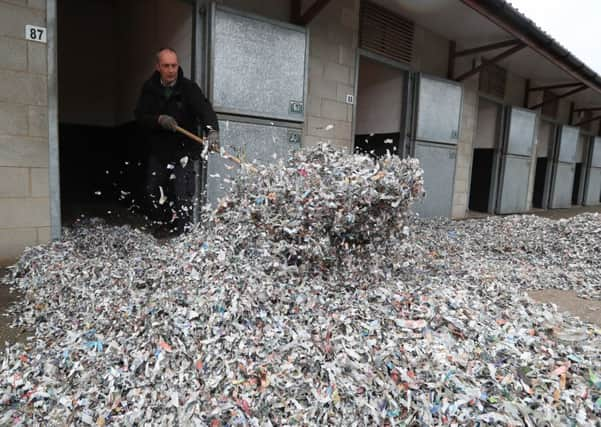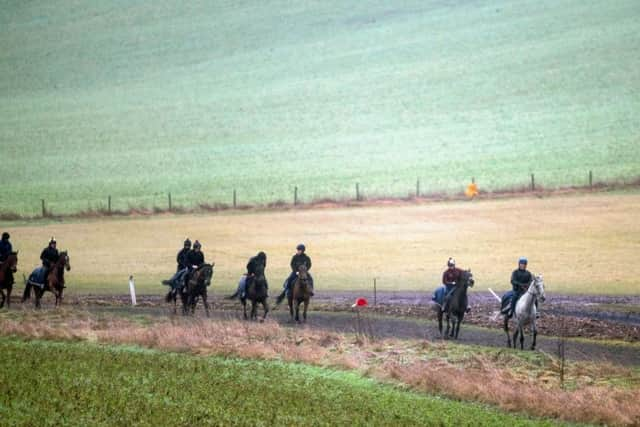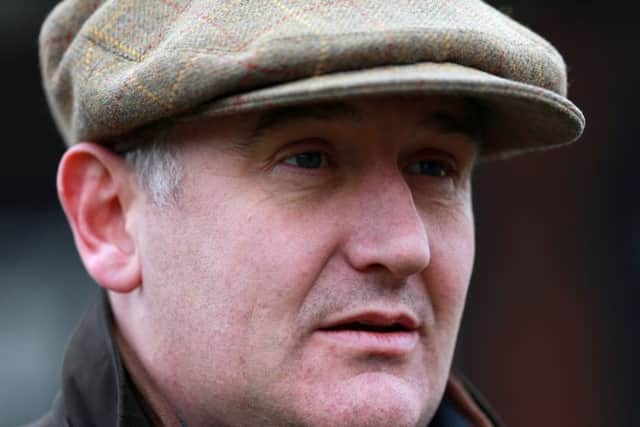Equine flu shutdown proves to be costly exercise


It follows the imposition of a six-day lockdown ordered after an outbreak of equine flu at trainer Donald McCain’s yard.
A further three horses at McCain’s Cheshire stables have since contracted the highly virulent virus, bringing the total to six, as British Horse Racing Authority chief executive Nick Rust warned that the impact could last “a few weeks”.
Advertisement
Hide AdAdvertisement
Hide AdThey include Raise A Spark, who competed at Ayr on Wednesday for the 2011 Grand National-winning trainer.


In a separate development, a suspicious case – which has not yet been confirmed as a positive sample by the BHA – has been identified at another yard.
The unnamed stables had runners at the fixtures at Newcastle on Tuesday and Wolverhampton 24 hours later.
Movement restrictions remain in place at 174 yards that have had runners at meetings where there have been horses competing from the McCain stable – or the second training operation now under scrutiny.
Advertisement
Hide AdAdvertisement
Hide AdBut while the BHA say Raise A Spark’s positive test “relates to a sample taken the following day and the horse showed no clinical symptoms on raceday”, the sport is in limbo.


Officials will determine on Monday whether meetings can resume as early as Wednesday once scientists have reviewed swabs taken from every horse at the 174 yards that could, potentially, have come into contact with runners from the McCain yard this year – or the second stable to be under investigation.
“In the meantime we ask that everyone involved in the sport continues to be vigilant, restrict where possible all movements of horses and people and maintains the highest standards of biosecurity,” added a BHA spokesman.
Meanwhile, Rust believes the BHA’s swift response could have prevented an even longer shut-down, which might have put next month’s Cheltenham Festival – and the Grand National at the beginning of April – at further risk.
Advertisement
Hide AdAdvertisement
Hide AdAsked what a worst-case scenario might still be, Rust said: “The worst fears are that we don’t contain it quickly.
“But by taking the action we have over the last couple of days – we’re effectively locking down the movement of racehorses, instructing trainers to take extra special precautions – we’re fairly confident we will manage to restrict it.
“Until we know the complete extent over the next few days of the distribution of the virus we won’t know exactly where we are.
“We have a ‘war-room’ – we have 20 vets employed at the BHA, forensic investigation, a lab in Newmarket that is processing hundreds of tests now.
Advertisement
Hide AdAdvertisement
Hide Ad“Once we know whether there has been a spread of infection there or not we will be in a much better position to know where racing is.”
Rust remains optimistic, however.
“We hope we’ve got a hold of it quickly and that by Monday we’ll be in a position to make another call,” he added. “I don’t know if that will need a few more days or not, but I strongly believe this is a few weeks at most, because we’ve acted quickly.
“Vaccinations never work 100 per cent. Racehorses are among the best looked-after animals in the country – they are super athletes. We’re on top of this quickly.
“The reason this has been picked up is because of that care and attention, so we’ve got a very good chance of managing this.
Advertisement
Hide AdAdvertisement
Hide Ad“We are not concerned that we are facing a (superbug) mutation issue here.”
A high-profile weekend of racing has already been lost with Gold Cup winner Native River among those who had been due to warm up at Newbury for this year’s Cheltenham challenge.
David Stevens of Coral said: “We’ve lost some good racing; a weekend like that might cost the industry £25m with the Betfair Hurdle and a good Gold Cup trial (Denman Chase). There was also good racing at Warwick. I think that’s a fair figure to estimate for a big weekend like that.
“There’s a certain irony that in the past there has been a doubt about this Newbury meeting because of the weather, yet this weekend we were set fair. We’re not going to speculate about Cheltenham at this stage, it does nobody any good. Let’s hope the test results all come back clean.”
Advertisement
Hide AdAdvertisement
Hide AdWith bookmakers contributing significantly to racing’s prize money, the knock-on-effects could be significant.
However, a lengthy postponement because of the flu outbreak would be “potentially catastrophic” according to betting guru John McCririck.
But the renowned pundit did concede bookmakers are better placed to cope with a lengthy cancellation due to their diversification. “If you go back to when I started off in the industry there were only three ways you could bet – horses, greyhounds and the football pools,” he said.
“Now, unbelievably, horse racing is less than 50 per cent of what they take in betting shops.
Advertisement
Hide AdAdvertisement
Hide Ad“In the past when there have been shutdowns because of frost etc it was catastrophic, betting shops closed. Now they have that protection although shares did fall yesterday.”
McCririck was full of praise for the BHA. “They are sometimes an easy organisation to target – and usually with good reason – but I’m not sure there’s anything else they could have done,” he added.
“The industry is united and they are being well led; it’s a tribute to the BHA. Hopefully this is a one-off case.”